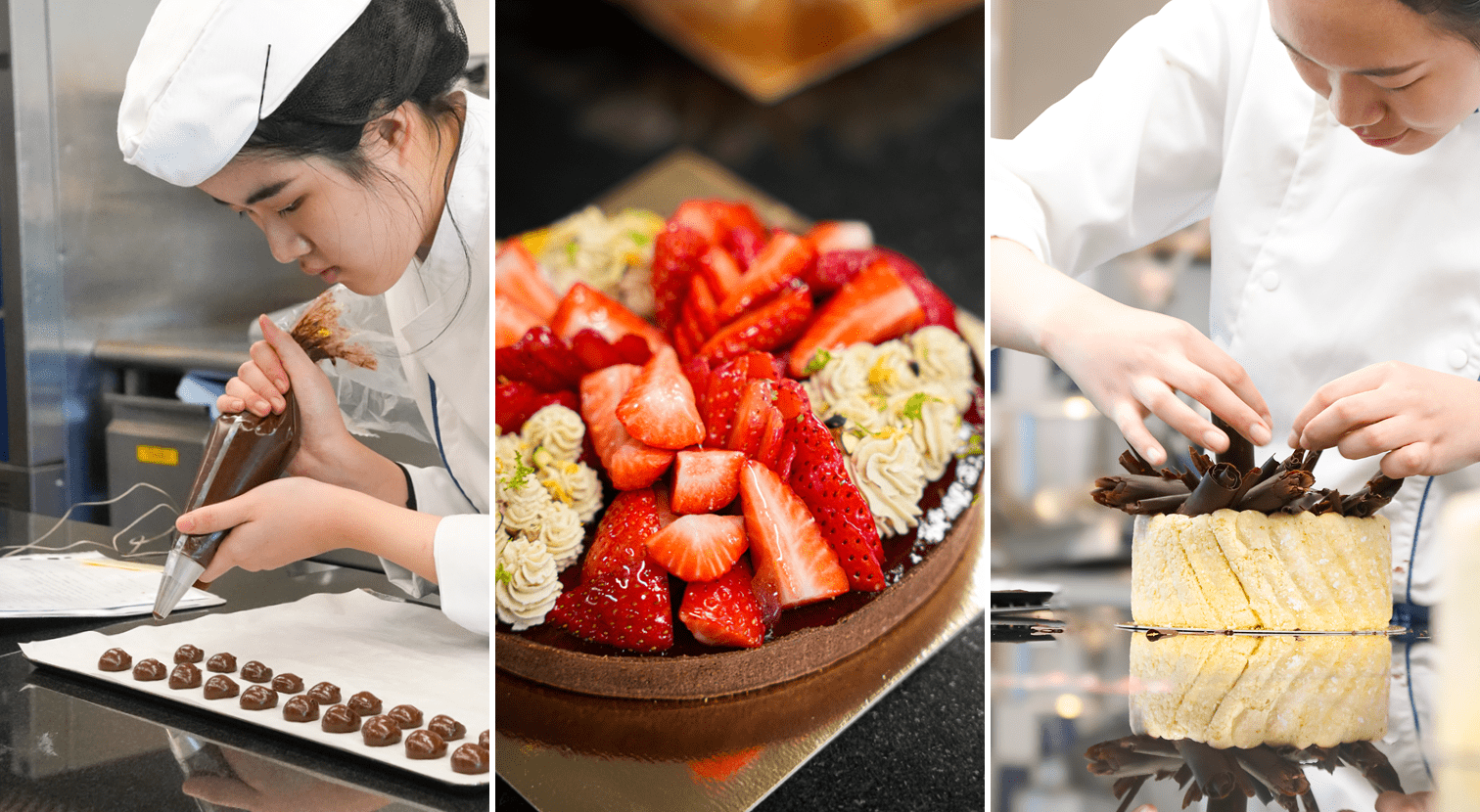
Discover pastry professions with Le Cordon Bleu
Patisserie is synonymous with excellence, where creativity, precision and a passion for detail come together. Much more than just a job, it is a true vocation for those who dream of transforming raw ingredients into spectacular sweet creations. Whether you are considering a career change, looking for a stable job in the restaurant industry, or keen to perfect your skills, Le Cordon Bleu provides training programmes dedicated to excellence to help you turn your passion into a life project.
There are many opportunities: Whether you work in the demanding world of
high-end patisserie, artisan bakeries or prestigious establishments, the prospects are varied and promising. Depending on your background, specialisation and experience, your
salary can rise quickly, making this a rewarding choice both personally and professionally.
What jobs are there in the patisserie field?
The patisserie field is vast and encompasses several specialities, each with its own requirements and particularities:
- Pastry cook: Making a variety of desserts (cakes, tarts, freshly baked pastries, chocolates, entremets). Decorating desserts with glazes, fruit or decorative elements. Creating new recipes and presentation styles to appeal to customers.
- Chocolatier chef: Working with chocolate to create confectionery, sculptures and decorations. Mastering chocolate tempering and moulding techniques.
- Confectioner chef: Making confectionery such as sweets, nougats and caramels. Use of specific techniques for cooking and handling sugar.
- Ice cream chef: Making ice creams, sorbets and frozen desserts. Creating new flavours and textures.
- Pastry chef: Supervising the pastry team in a restaurant or hotel. Developing dessert menus and managing daily production.
Discover more fascinating careers
Key skills for success:
Being a pastry chef requires a combination of technical know-how and personal qualities:
- Precision and meticulousness: Every gram counts, every technique must be mastered.
- Creativity: Innovating, surprising and reinterpreting the classics are the keys to success.
- Discipline and organisation: Respecting resting periods, temperatures and specific techniques.
- Physical stamina: On your feet all day, working at a fast pace and with a demanding schedule.
- Team spirit: Patisserie is all about working as a team, and communication is essential.
- Mastering food hygiene and safety standards: Essential for guaranteeing product quality and conformity.
Essential skills for success:
In patisserie, reaching excellence is reliant on several factors. First and foremost, precision: The smallest gram can make all the difference, and every step must be carefully executed. Then there is creativity, essential for reinventing all-time classics and surprising taste buds. But without discipline and organisational skills, it is impossible to respect resting times, ideal temperatures and the highly specialised techniques that make a dessert a success.
The job also requires
considerable physical stamina: Standing for long hours, keeping up with the fast pace in the kitchen and managing sometimes intensive days.
Team spirit is just as crucial: In a laboratory, clear communication and mutual support are the keys to well-orchestrated work. It is, of course, also impossible to ignore
strict hygiene and food safety rules, which are essential to guarantee that creations are as faultless as they are tasty.
Core activities and skills:
- Preparing and making pastry, confectionery, chocolate and ice-cream products in accordance with food hygiene and safety rules.
- Precise selection and dosage of ingredients for each recipe.
- Use and maintenance of kitchen equipment and utensils.
- Quality control of finished products before they go on sale.
- Creating and testing new recipes or improving existing ones.
Specialised tasks and skills:
- Advanced techniques: Sugar work, tempering chocolate, assembly of artistic centrepieces.
- Stock management and procurement of raw materials.
- Compliance with HACCP standards to guarantee production meets health requirements.
- Managing a team for positions of responsibility such as pastry chef.

